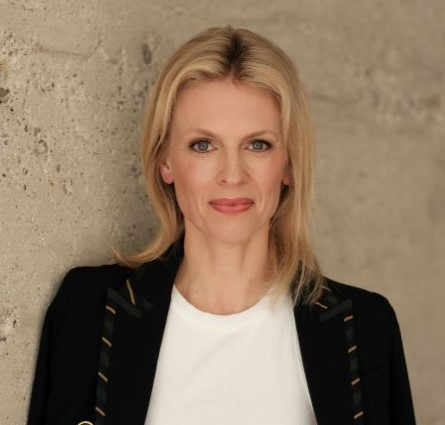Retail
The new era of retail is innovative, data-driven, sustainable and customer-centric. Forward-thinking leaders are enriching customers with a sustainable and personalized offering and unique experiences, online and in-store.

Challenges in Retail
Rising operating costs, loss of market share due to fierce global competition and new business models, challenges in the supply chain, new technologies and a shortage of skilled workers – the retail industry is facing a multitude of challenges that are putting it under pressure.
More on the challenges in Retail
New technologies: New technologies are fundamentally changing the retail sector. Automated processes, data-driven decision-making, AI-assisted planning and networked systems optimize not only planning, logistics and warehousing, but also the customer experience, for example through personalized offers and digital services. Companies that manage to effectively leverage the potential of technology will be able to strengthen their competitive position. Issues such as data protection, data security and cyber security are becoming increasingly important. E-commerce must adapt to the growing customer demands regarding the protection of personal data and transparent, secure payment models.
Innovative business models: Developing new business models in retail requires a change in thinking. Omnichannel customer experiences, subscription-based e-commerce, marketplaces, customization – the possibilities are endless. The key is to shape innovation and secure the necessary financing while maintaining cost efficiency.
Personalization: Customers are increasingly demand personalized shopping experiences and customized products. Retailers must develop innovative solutions to meet these growing expectations. This requires a combination of detailed customer analysis and close collaboration with suppliers. At the same time, competitive pressure is increasing the need to boost efficiency by standardizing and automating processes.
Global networks and supply chains: Global trade is highly interconnected. Global crises, geopolitical tensions and protectionist tendencies have a direct impact on the international movement of goods. Increasing cost pressure and the fragmentation of supply chains require targeted adaptation of business models.
Sustainability: Environmental awareness and sustainable consumption are becoming increasingly important. Investors, governments and consumers are demanding that retailers implement sustainable business models. Retailers need to invest in sustainable supply chains, resource-efficient packaging and energy-efficient logistics solutions. Increased awareness of environmental and climate protection is leading to changes in purchasing habits, which in turn is forcing retailers to adapt their product offerings and processes.
Competence shortage: Like many other industries, retail is facing an acute shortage of skilled workers. Logistics, IT, and sales professionals are hard to find. This means that companies must invest more in the training and further education of their employees to remain competitive. Attractive working conditions and flexible working models are key factors in overcoming the competence shortage in the long term.

Need for Action for Leaders
Retail executives are faced with the challenge of implementing innovation in a dynamically changing environment. This requires a high degree of flexibility, strategic foresight and financial acumen.
More on the need for action by leaders
Competences in the areas of change management, problem-solving and creativity are crucial. Retail executives must also lead teams through complex changes and adapt the corporate culture.
A key challenge is to find a balance between innovation and cost efficiency to expand the competitive position again. This also includes creating an environment in which employees can continuously expand their competences, particularly in technology-driven areas such as data analysis, AI and digital customer service. At the same time, customers’ increasing demand for sustainable products and transparency requires a strong focus on ESG (environmental, social, governance) goals, which must be consistently integrated into the corporate strategy.
Managers are challenged to both reduce the company’s environmental footprint and ensure that ethical standards are adhered to throughout the entire supply chain. In an environment characterized by uncertainty and rapid change, the ability to respond quickly and intelligently to external influences such as geopolitical tensions or regulatory changes will also be crucial.
Searchery supports retailers in their search for executives and professionals who can shape this profound change, lead through transformation and successfully align with the future.
We advise on strategic personnel planning and development, from talent management to building a gender-diverse corporate culture. We have practical experience in the design and implementation of management audits, using only scientifically sound diagnostic tools and conducted by experienced psychologists. We also help align competence models for leadership selection and development for future success.


Contact us

Philine Cremer
Partner, Düsseldorf

Nina Maywald
Partner, München

Henrike Simon
Associate Partner, München
Our Functions

About us
Searchery is a young Executive Search Consultancy with mandates and projects at both listed and medium-sized companies as well as international start-ups and scale-ups.
Our focus is on executives who shape change in today’s changed corporate and leadership context with future-oriented competence profiles.
